How Global Logistics Partners Drive International Trade Success
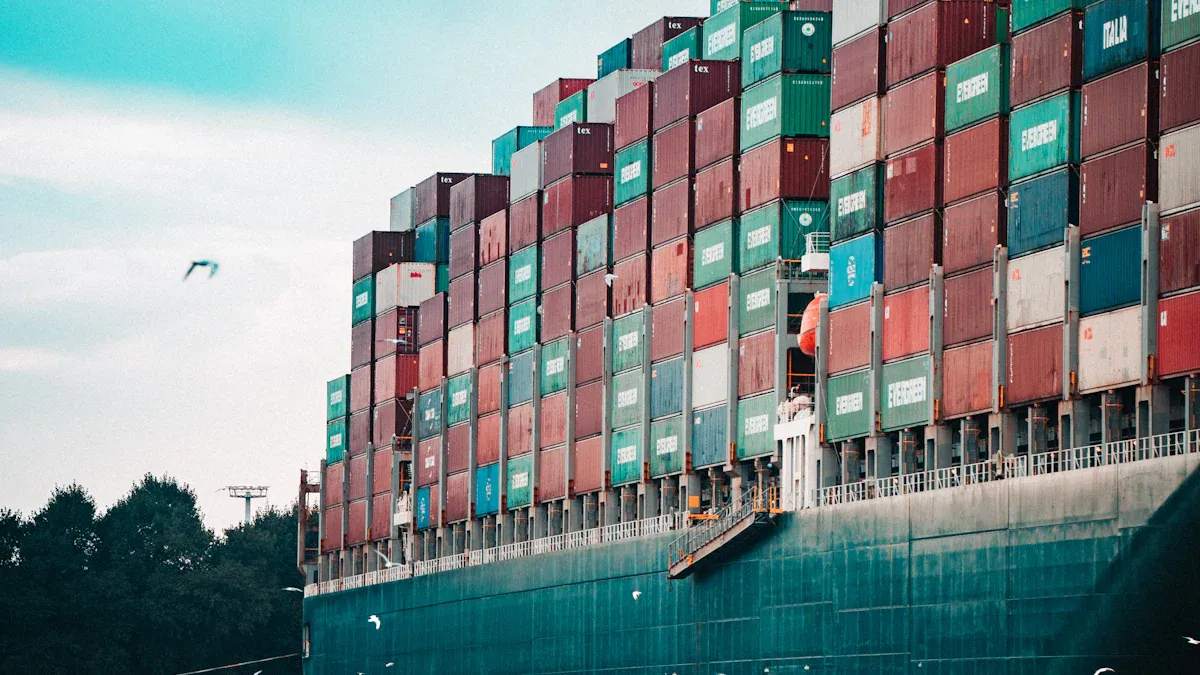
Global logistics partners are very important in international trade. They help move goods quickly and watch over the shipping process. Companies trust these partners to move goods smoothly, follow rules, and save money. Logistics becomes more important as businesses look for good partners to do well around the world.
Key Takeaways
Global logistics partners help companies move goods easily between countries. They take care of shipping, customs, storage, and risks.
Using smart technology like live tracking helps shipping go faster. Digital customs tools make shipping safer and cheaper.
Expert logistics companies help businesses grow and save money. They also help companies compete better in the global market.
Global Logistics Partners in International Trade
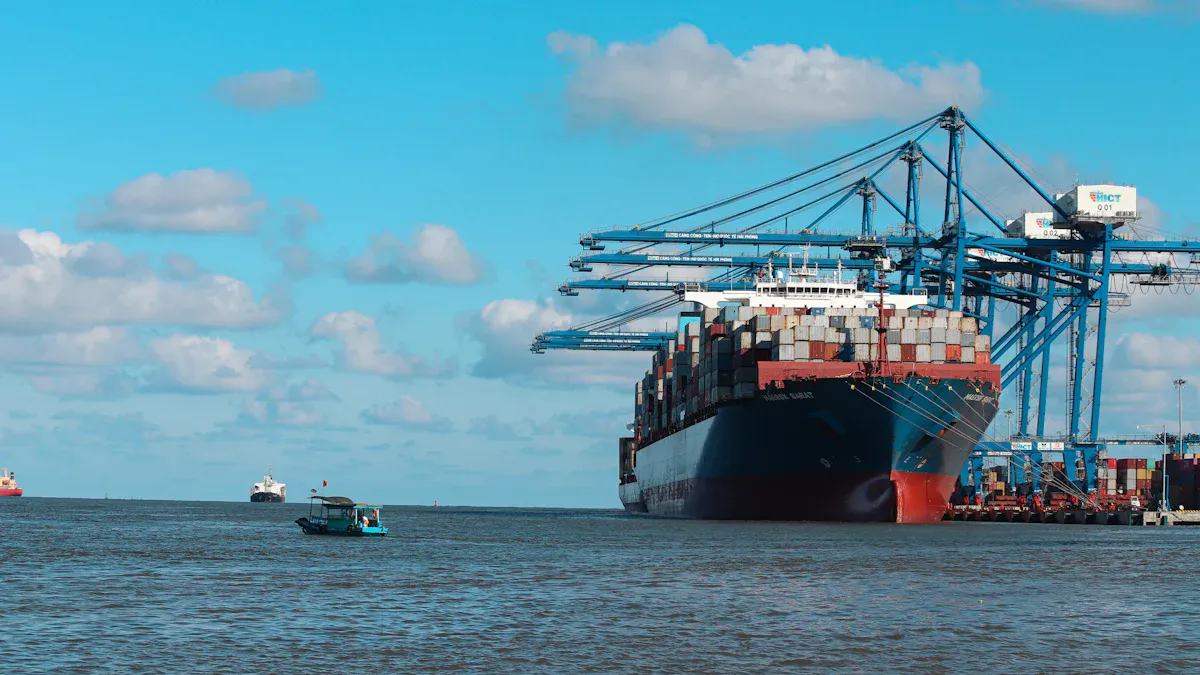
Core Functions
Global logistics partners are very important in world trade. They help companies move goods between countries. They also handle hard supply chain jobs. Groups like the World Trade Organization and International Maritime Organization make rules for these companies. These partners do many main jobs:
They set up how goods will be moved.
They watch over the whole shipping process.
They help with customs and make sure rules are followed.
They take care of insurance for the goods.
They give places to store goods.
They keep track of shipments as they move.
They lower risks and make things easier for customers.
Freight forwarders and their teams work together. They make sure goods arrive safely and on time. This helps global trade run smoothly.
Services Overview
A global logistics company gives many services for moving goods. These include air, sea, land, and train shipping. Freight forwarders help with customs and paperwork. They also offer storage and insurance. Some forwarders can ship things faster if needed. Many use technology to work better and track shipments live. Companies trust these experts to handle all kinds of freight. This includes special shipments and smaller loads. This way, they help with every step of global trade.
JUSDA’s Industry Solutions
JUSDA is a top global logistics company. It gives special supply chain and logistics help to many industries. The table below shows how JUSDA changes its services for electronics, cars, and healthcare:
Industry Sector | Solutions Provided | Regional/Localization Strategy | Technology & Features |
|---|---|---|---|
Electronics | Vendor Managed Inventory, warehousing, distribution | North America: Cross-border VMI; Vietnam: VMI + CMI; India: Integrated warehousing | JusLink Smart Supply Chain, RFID, WMS, automation, tracking |
Automotive | Tailored logistics for high-value markets | North America: US-Mexico border collaboration | Dynamic inventory, auto procurement, risk management |
Healthcare | Warehousing, distribution, logistics for medical equipment | North America, Vietnam, India: Local supply chain integration | Digital solutions, automation, end-to-end visibility |
JUSDA’s big network and smart technology help companies do well in global trade. Freight forwarders and their teams use these tools to give good, fast service all over the world.
Optimizing the Shipping Process
Transportation Modes
Freight forwarders help pick the best way to ship goods. They think about what is being shipped, how fast it needs to get there, and how much it costs. Most goods travel by sea. Sea freight is used for about 90% of world shipping. It is good for moving big and heavy things for less money. This works well for things like coal, iron ore, and oil. Air freight is much faster. It is used for things that are worth a lot or need to arrive quickly. Rail and road are used to move goods on land. These work best where there are good train tracks or roads.
The table below shows how freight forwarders look at each way to ship:
Transportation Mode | Pros | Cons |
|---|---|---|
Air Freight | Fastest, secure for high-value goods | Expensive, size limits |
Ocean Freight | Low cost for large shipments, eco-friendly | Slow, needs ports |
Rail Freight | Good for large volumes, cheaper than air | Needs rail lines, slower than air |
Truck Freight | Flexible, good for short distances | Slower, can face delays |
Multi-modal | Mixes modes for best results | Needs careful planning |
Freight forwarders use these choices to move goods well. They often mix different ways to ship. This helps balance speed, price, and how much can be shipped. Companies get the best service for what they need.
JusTrade Customs Clearance
Shipping can get stuck at borders. Freight forwarders fix this with smart customs tools. JusTrade is part of JUSDA. It uses digital customs clearance that links to JUSDA’s supply chain system. This makes cross-border shipping smooth and safe. It takes care of customs, rules, and tracking in real time.
JusTrade’s customs clearance gives many good things:
It covers customs, storage, and delivery.
It uses the JusLink platform to show where goods are.
Automation stops mistakes and makes shipping faster.
Real-time tracking and data help lower risks and work better.
Freight forwarders move goods easily on trusted paths, like from Asia to Mexico.
With JusTrade, shippers can grow their business without worry. The platform uses global and local know-how. This makes shipping faster and more dependable.
Technology and Tracking
Technology has changed how freight forwarders work. They use tools like IoT, cloud computing, and big data to track goods live. These tools help them watch shipments at every step.
Technology | Role in Real-Time Shipment Tracking | Example Applications |
|---|---|---|
Internet of Things (IoT) | Watches shipments and containers live | Sensors check where goods are and their condition |
Cloud Computing | Shares info fast and helps teams work together | Platforms give updates to everyone in the supply chain |
Big Data Analytics | Looks at lots of data to plan better and guess demand | Helps forwarders avoid delays and pick better routes |
Artificial Intelligence (AI) | Helps make smart choices and spot problems | AI chatbots and route planning |
Autonomous Vehicles & Drones | Makes deliveries faster and tracks last steps | Trucks and drones bring goods and send updates |
Blockchain | Keeps shipment records safe and easy to check | Secure tracking and paperwork |
Freight forwarders use these tools to make supply chains better. They always know where shipments are. Live tracking helps them fix problems fast and keep customers happy.
Companies using these tracking tools see big gains. Delivery times are up to 30% shorter. On-time rates reach 99%. Inventory costs drop by 20%. Logistics costs go down by 15%. Automation makes jobs 74% faster. Live tracking gives more control and lets everyone see what is happening.
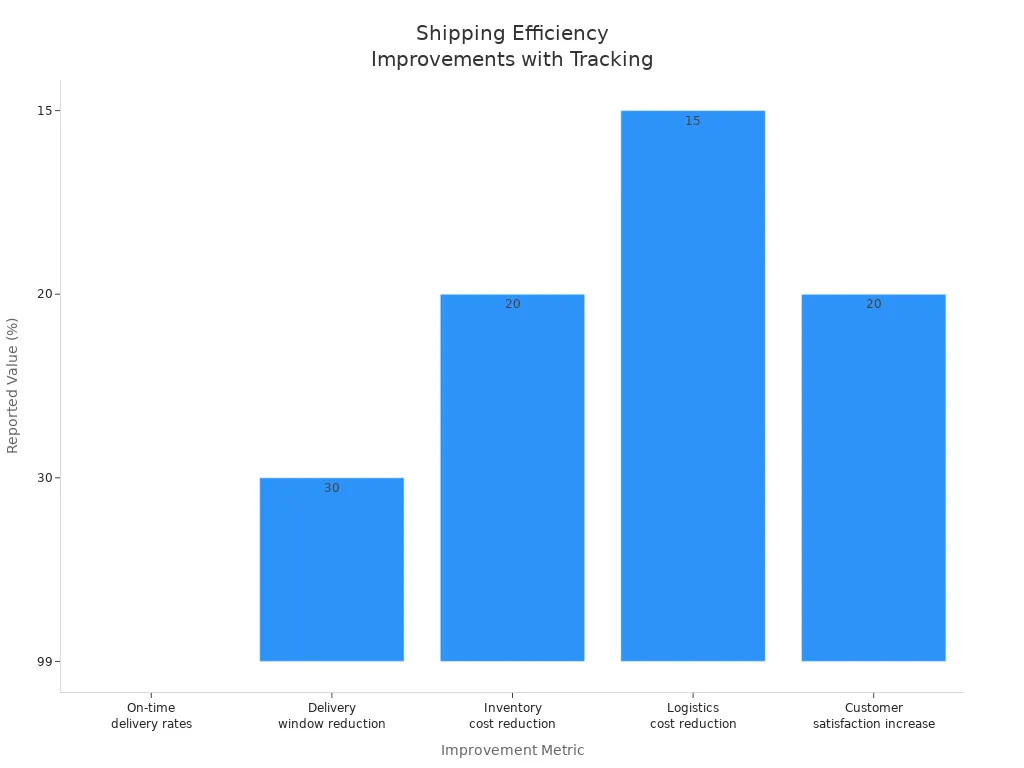
Tracking with technology also cuts shipping delays by 20% to 30%. Freight forwarders use these tools to make shipping smoother and more reliable. This means happier customers and lower costs for all.
Overcoming Global Trade Challenges
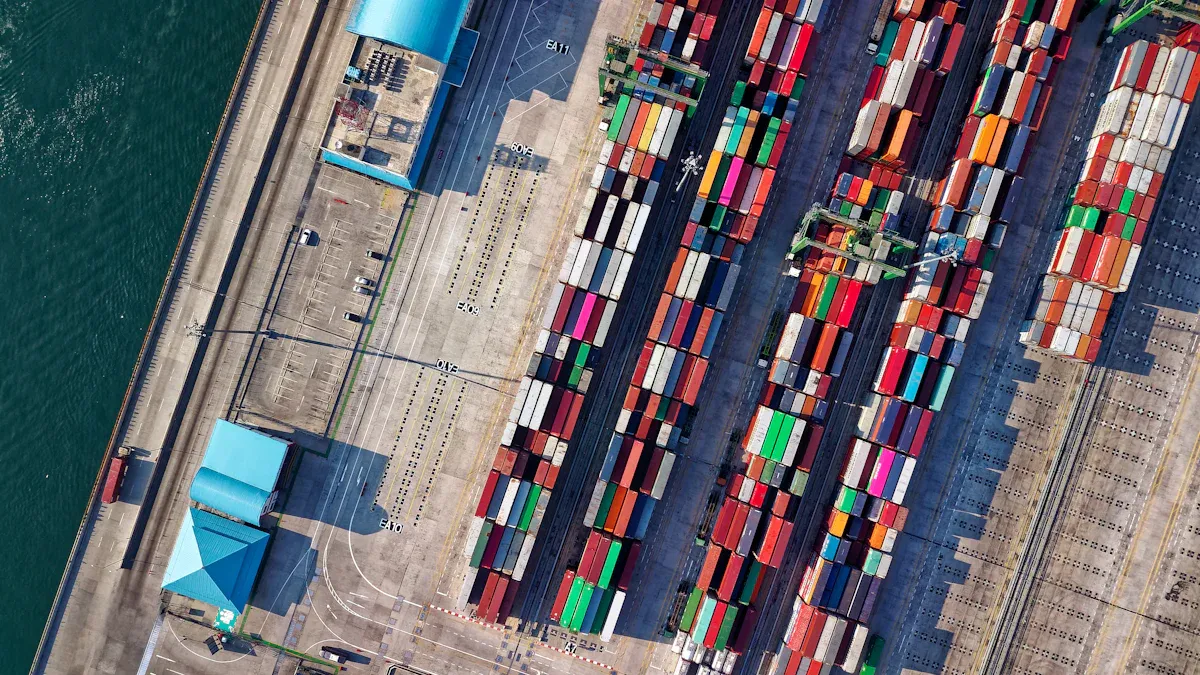
Compliance and Risk
Freight forwarders help companies follow rules in global trade. Every country has its own customs rules. If paperwork is wrong, shipments can be delayed or fined. Freight forwarders know how to keep shipments safe and legal. They help by:
Making sure all forms are filled out right.
Using technology to spot mistakes and track goods.
Companies face many risks in global trade. These include supply chain problems, money changes, and cyber threats. Freight forwarders check for risks and use strong security to protect goods and data. They also work with customs agents to stop border problems.
Cost and Efficiency
Freight forwarders help businesses save money and work better. They find the best shipping prices and routes. By combining shipments and planning well, they cut transport and storage costs. Many companies save 10% to 20% by using global logistics partners.
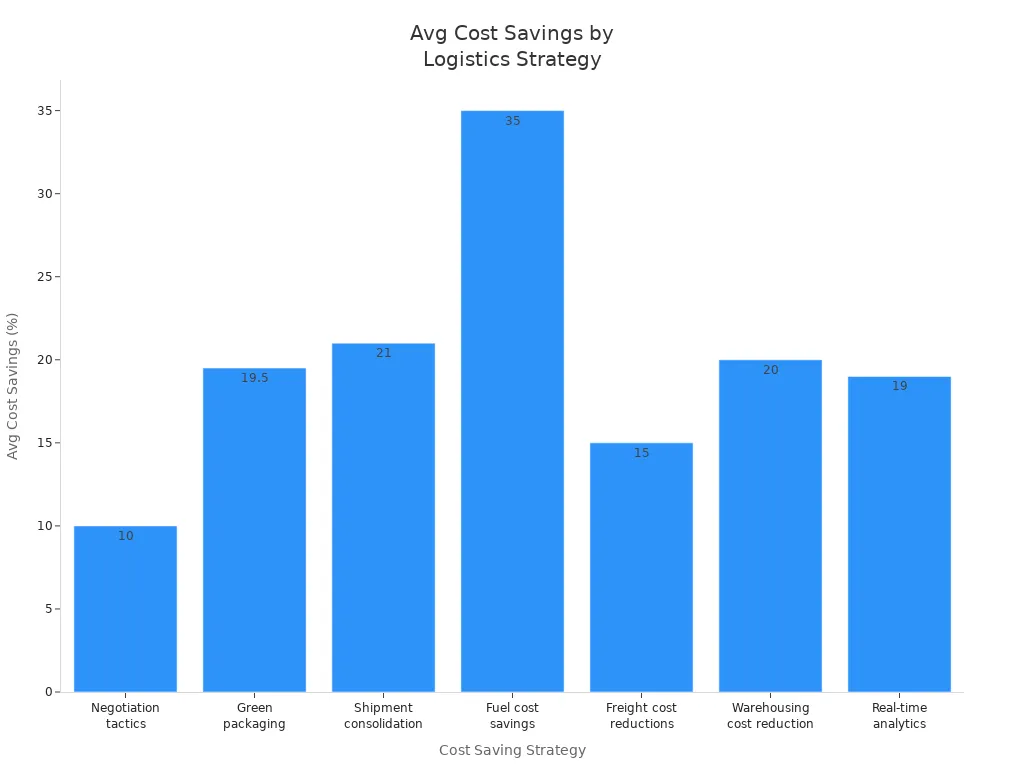
Freight forwarders use digital tools to track shipments and manage stock. This helps avoid delays and extra fees. When companies use experts like JUSDA, they get a big network and smart technology.
International Shipping Solutions
Freight forwarders fix many problems in global trade. They use tracking to give live updates on shipments. They handle freight by air, sea, rail, and road. Their skills help with customs, language, and inventory.
JUSDA’s platform links teams around the world. This makes importing and exporting easier. JusTrade’s customs skills help shipments cross borders fast and right. Freight forwarders use data and flexible plans to keep goods moving. Their global trade knowledge helps companies grow and compete.
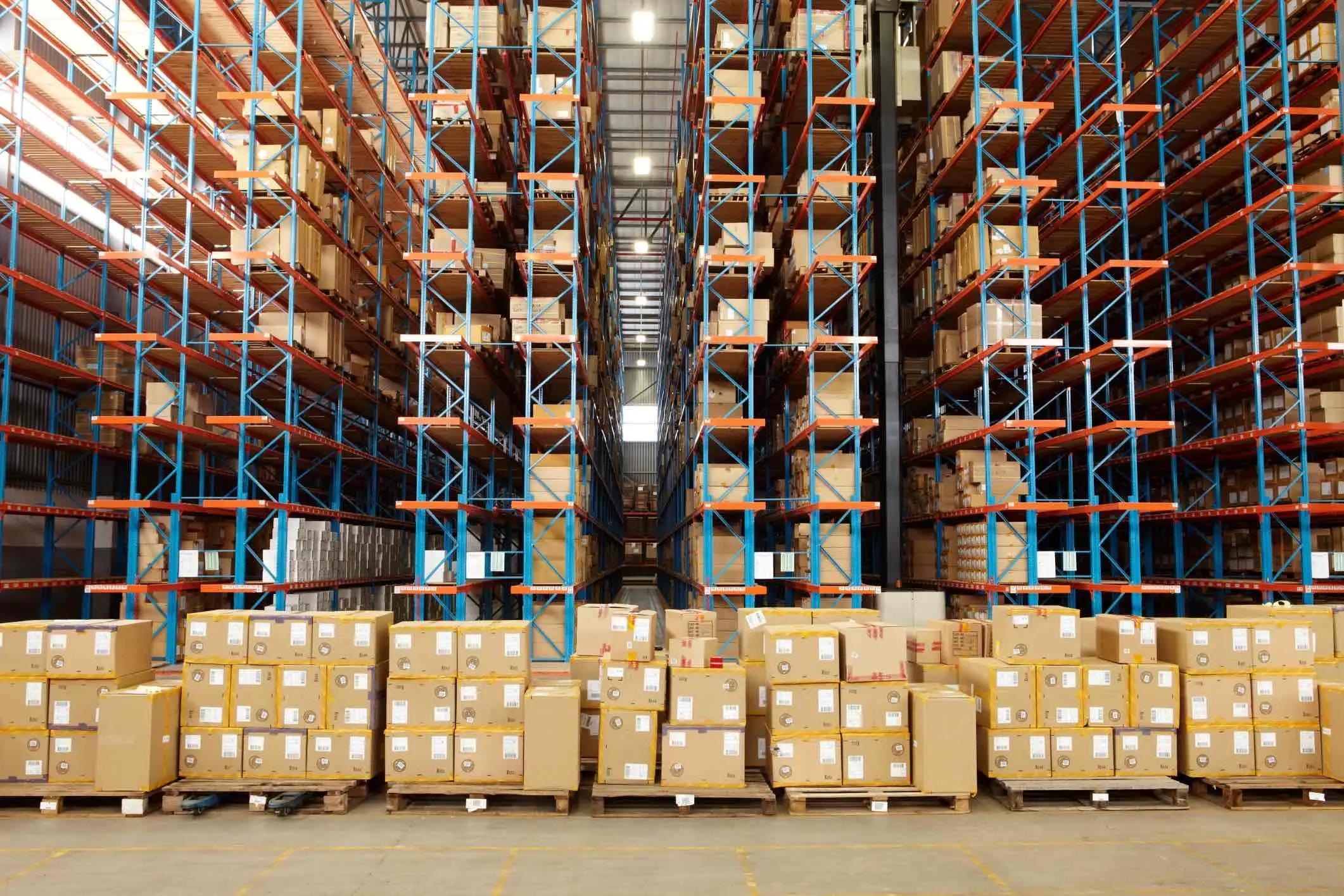
JUSDA Solutions
To provide you with professional solutions and quotations.
Global logistics partners help international trade work better. They make shipping faster and save money for companies. They also help businesses reach new places to sell goods.
Companies such as JUSDA and tools like JusTrade use smart technology. They track shipments live and help manage risks.
Businesses can grow bigger and change plans easily. They also get strong supply chain connections.
Working with logistics experts helps companies get bigger, change fast, and compete with others around the world.
See Also
Comprehensive Insights Into Leading Global Logistics Providers
Overcoming Supply Chain Growth Obstacles In A Connected World
How Supply Chain Transparency Drives Global E-Commerce Success
Transforming Logistics Through Cutting-Edge Supply Chain Innovations
Artificial Intelligence Shaping The Future Of Logistics Operations
